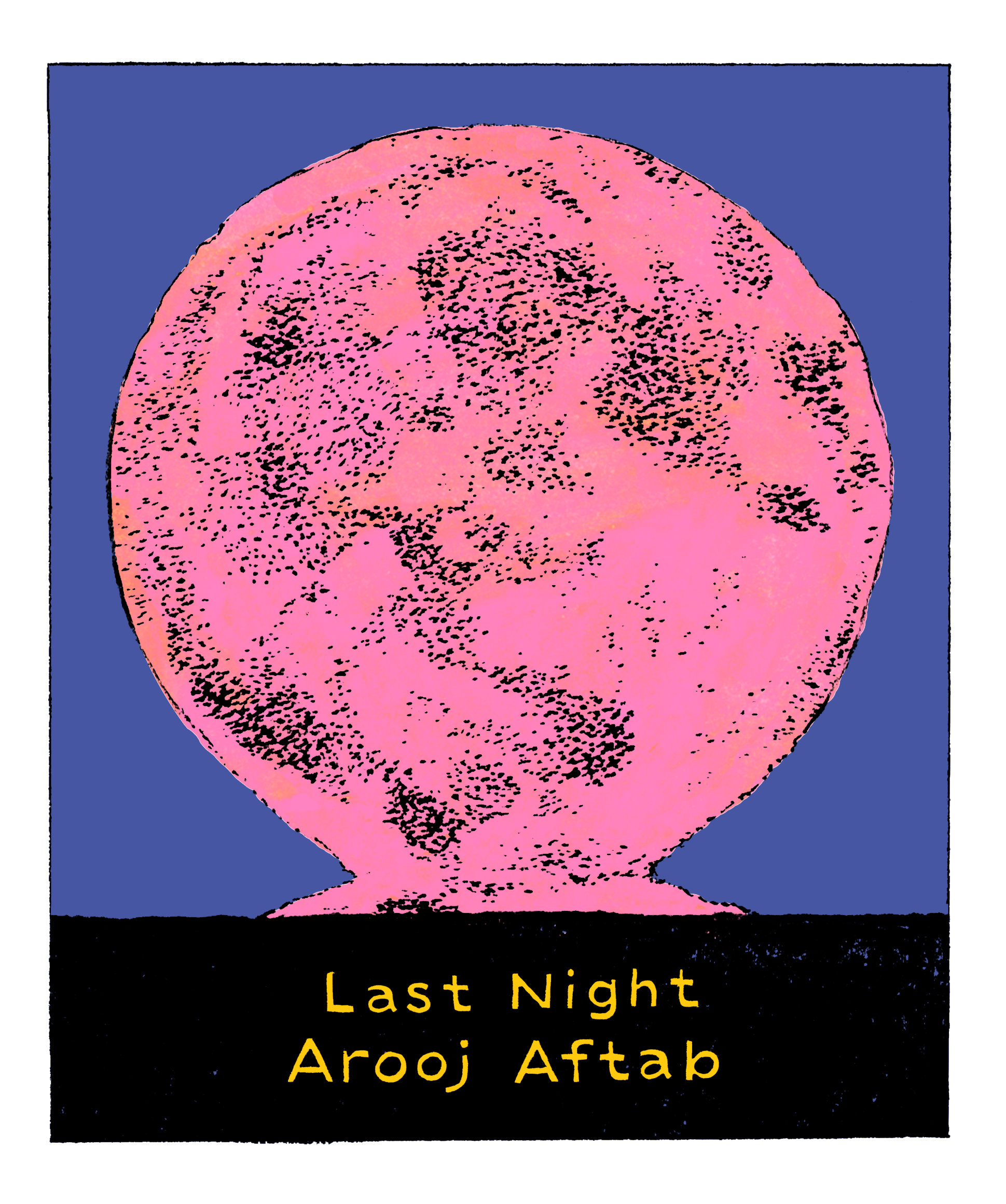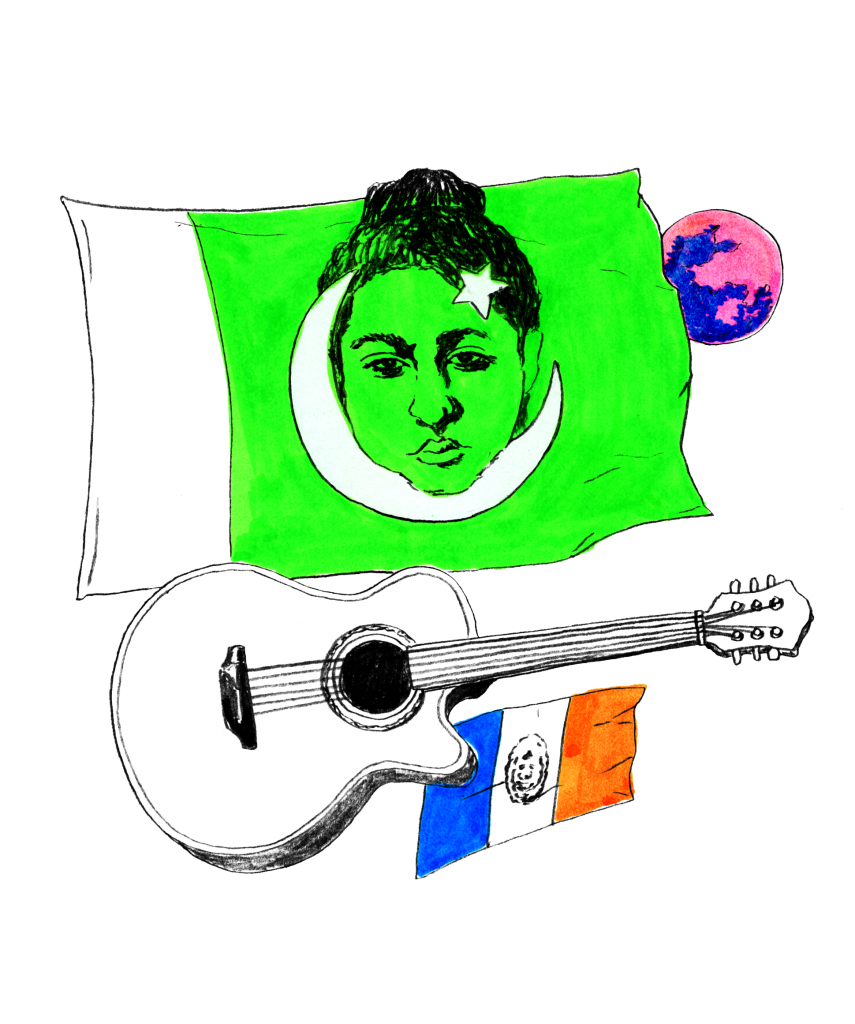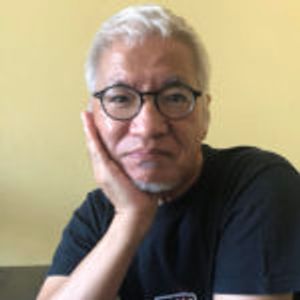With the end of the year approaching, the best singles and albums of the year are announced in various music media. Among several such lists, the one I personally trust is from NPR radio station, and Arooj Aftab’s “Vulture Prince,” the album I listened to a lot this year, is listed at No. 7.
I first started listening to this album because of its high reputation and the fact that the musician lives in Brooklyn, where I live, but my first impression was not so impressive. However, as I listened more and more, the music performed and sung by Aftab, who is from Pakistan, gave me a sense of calmness.
The sound structure itself is not complicated. For example, the first song on the album, “Baghon Main,” is led by a beautiful melody on the harp, accompanied by violin and double bass, which harmonize perfectly with her singing to create a mysterious and serene sound.
In spite of the simplicity of the sound, the depth is brought by the addition of ethnic sounds that are different from those of so-called Western music. Needless to say, the “different sound” is a melody reminiscent of Aftab’s roots in South Asia.
A fusion of different cultures, languages, and sounds to create an innovative sound.
The fusion of different cultures is not only in the sound but also in the lyrics, with Pakistani language being used in many parts of the songs on the album. In “Inayaat,” the third track on the album, the language is used from the beginning to the end of the song.In the American music scene, it is not uncommon, but not uncommon, for a song that uses a non-English language or music to gain attention and become a hit.
For example, Brazilian-born Sergio Mendes was one of the key figures in expanding the popularity of bossa nova in the 1960s, not only in the U.S. but also internationally, and Buena Vista Social Club became one of the first groups to dominate the Cuban music scene in the late 1990s and early 2000s, along with a major hit movie featuring the group.
We cannot compare her to other musicians simply because she is from a non-English speaking country, as the times and social conditions are different, but in Aftab’s case, her personal characteristics seem to be more to the front.
I got the chance to see Buena Vista Social Club in concert in New York, and I was thrilled to see that there was music in existence that resonated with the listener so much, and it made sense that they would gain worldwide popularity. However, the reason for their recognition outside of Cuba cannot be said without American musician Ry Cooder.
Mendes also emigrated to the U.S. in his twenties and signed with A&M, a local record label headed by Herb Albert, a acquainted trumpeter. Although A&M was an up-and-coming label, it was the backing that provided Mendes with a place to flourish, and the fact that it was a record company that knew the tendencies of American listeners meant that his songs reflected a somewhat americanized sound.
In contrast, Aftab’s debut album, Bird Under Water (2014), which she produced independently in New York after moving to the United States at the age of 20 and graduating from the prestigious Berklee College of Music, credited her with songwriting as well as produce. Then she signed with the independent label New Amsterdam, and after her second album, ”Siren Islands” (2018), which was devoted to writing and singing, she again produced herself for ”Vulture Prince”.
Identity as a Pakistani in its main axis
This means that Aftab herself has taken the lead in the making of the album, and as I mentioned earlier, the result is that the album is a great reflection of herself. One of the most notable examples of this is “Diya Hai,” which expresses her feelings as a family member, as her own brother had the misfortune of dying while she was working on it.
At the same time, her Pakistani identity also assumes a key role in the album. The first single cut, “Last Night,” is partly a quote from a poem by Rumi, a Pakistani poet, and the influence of Pakistani culture is also strongly projected here.
Last night my beloved was like the moon
So beautiful
Last night my beloved was like the moon
So beautiful
So beautiful like the moon
So beautiful like the moon
So beautiful like the moon
So beautiful like the moon
Even brighter than the sun
After the simple English lyrics and some repetitive phrases, comes the Urdu (the common language of Pakistan) part, which I, with my limited verbal skills, could not translate or understand. Similarly, there must have been many listeners who were attracted to this song but could not grasp all the lyrics, which were in two different languages.
However, if you listen closely to the song and the performance, you will gradually realize that this “mixture” creates a strange effect. This is shown in the following part of the song, where the lyrics are in English, which I introduced above, followed by Urdu, which comes next, and then concludes the song.
So beautiful like the moon
So beautiful like the moon
So beautiful like the moon
So beautiful like the moon
Even brighter than the sun
Grace far beyond my grasp
The rest is silence
Most people agree that language is important when it comes to communicating with others. But is that everything when you are trying to communicate with someone? Do we need a common language to be able to understand each other?In spite of differences in language, cultural and social values, many people think of the moon as “pretty” or “beautiful”. Individual thoughts, philosophies, or political beliefs cannot interfere with this.
The pleasure and euphoria brought about by this mutual understanding that transcends language and is universal can be read in the phrase “Grace far beyond my grasp” in the lyrics.In this unstable age where the future is uncertain, and frustrations and worries are sometimes expressed as negative emotions, clashing and bickering can occur, the fantastic world of this song, which embraces and welcomes the mixture, brings back a sense of calm to our turbulent minds.
Illustration Masatoo Hirano
Edit Sumire Taya




